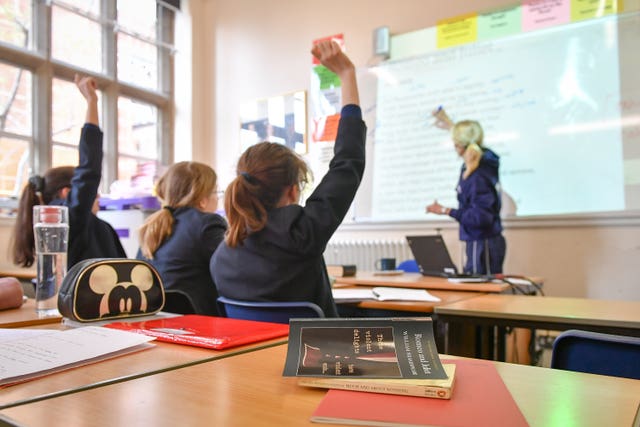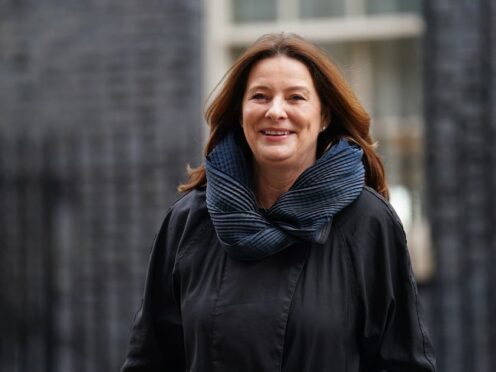The Education Secretary has criticised parents who allow their children to skip school on Fridays, calling the behaviour “unacceptable”.
Gillian Keegan told the Times that parents working from home have contributed to a rise in students missing school days.
She said that 50,000 more pupils were absent at the end of the week compared with the start, leaving schools facing “major challenges” with absenteeism as parents pull their children out of class for weekends away or holidays.
According to analysis of recent government figures by the Times, student absenteeism jumps by 20% on the last day of the working week.
According to the Times report, overall absence rates equate to 6.6% on Wednesdays and rise to 7.8% by the end of the week, with primary pupils 21% more likely to be absent on Friday and 24% more likely to be absent without a reason.

Unauthorised holidays are also said to be up 25% on pre-Covid levels.
According to March figures released by the Department of Education, 150,000 children at state schools were classed as severely absent for the 2022-23 school year.
That is 30,000 more than the year prior.
It is also 150% higher than the 60,000 who were severely absent in 2018-19, before the pandemic, according to government statistics.
Ms Keegan told the paper that “the Covid pandemic has had a major impact on school attendance”.
She said there were “still too many children whose attendance hasn’t recovered” following the pandemic, with a rise in youth mental health issues also thought to be a contributing factor.
Ms Keegan wants to see normal school attendance return, telling parents: “It is unacceptable to take a deliberate decision to take your child out of school.”
She also said those with mild anxiety should be expected to attend campuses.
Ms Keegan said support systems such as attendance hubs and mentors could make “a massive difference” for schools and parents.
“Where this support-first approach does not work, we have increased the minimum fine by £20, to £80,” she said.
“Every day a child is absent they will miss on average five to six lessons, time they never get back”.
Paul Whiteman, general secretary of the National Association of Head Teachers (NAHT), said: “School attendance is vital and parents taking children out of school on Fridays, or any day, disrupts their education, and also that of their classmates when teachers have to help them catch up.
“However, it is misleading to suggest that current rates of absence can simply be explained by parents allowing time off school on a whim.
“The issues we are seeing are the result of not just the pandemic, but a decade of Government austerity in which support for families has effectively been rationed.
“Children are not getting the help they need with challenges in their lives – from poverty and mental ill-health, to insecure housing and special educational needs – and this affects school attendance. We should be particularly concerned about those pupils who are frequently and persistently absent from school.”
Daniel Kebede, general secretary of the NEU, added: “It is very important for children and young people to be in school. Efforts to ensure regular attendance are clearly essential but attendance is a real challenge across the sector for a range of reasons.
“What Gillian Keegan has failed to admit is that adequate and stable staff numbers are also integral. Schools and colleges do so much to support students for whom attendance is an issue and to work with parents, but they are doing so with insufficient staffing numbers. What is needed is the recognition from Government that schools and colleges must have the resources and specialist support to support children, including well-funded pastoral and Senco teams.
“Fines are never the answer and putting extra strain on relationships with parents and families is counter productive.”
